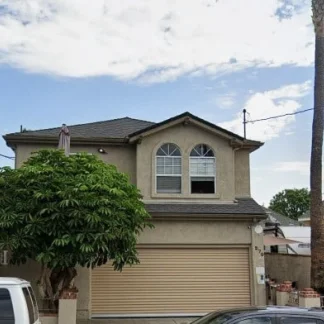BHS - Joint Efforts
BHS - Joint Efforts, located in Los Angeles, California, provides alcohol and dr...
Fred Brown Recovery Services – 278 West 14th Street of Central California offers addiction and mental health treatment for adults in Los Angeles, California. They also provide valuable community resources, including mental health, case management, and family support services.
Treatment at Fred Brown Recovery Services begins with a mental health assessment to screen for symptoms of addiction or co-occurring mental health disorders. Other services include the following:
Individuals attend individual and group treatment sessions for improved coping skills, peer support, and recovery support. Sessions are held 3-4 days a week.
Programs at Fred Brown Recovery Services use evidence-based practices to treat substance abuse and co-occurring mental health conditions for adults over 18.
Transitional housing is available to graduates from the residential program, providing a structured recovery residence to sustain their recovery before returning to their community. Residents must attend regular recovery meetings, comply with house rules, secure employment, and participate in household chores.
As a nonprofit organization, Medicaid and private insurance are accepted. Funding and sliding scale options may also be available. You’ll want to verify your eligibility with Fred Brown Recovery Services.
Contact us for more information: (310) 519-8723

Connect with Fred Brown Recovery Services - 278 West 14th Street by calling their admissions team directly.
(310) 519-8723 Website Get DirectionsGroup therapy is any therapeutic work that happens in a group (not one-on-one). There are a number of different group therapy modalities, including support groups, experiential therapy, psycho-education, and more. Group therapy involves treatment as well as processing interaction between group members.
BHS - Joint Efforts, located in Los Angeles, California, provides alcohol and dr...
Flossie Lewis New Life Recovery is a drug rehab facility in Long Beach, Californ...
The Beacon House Association of San Pedro- 1003 Beacon Street, located in Los An...
Western Health Harbor City Clinic offers community-based addiction and mental he...